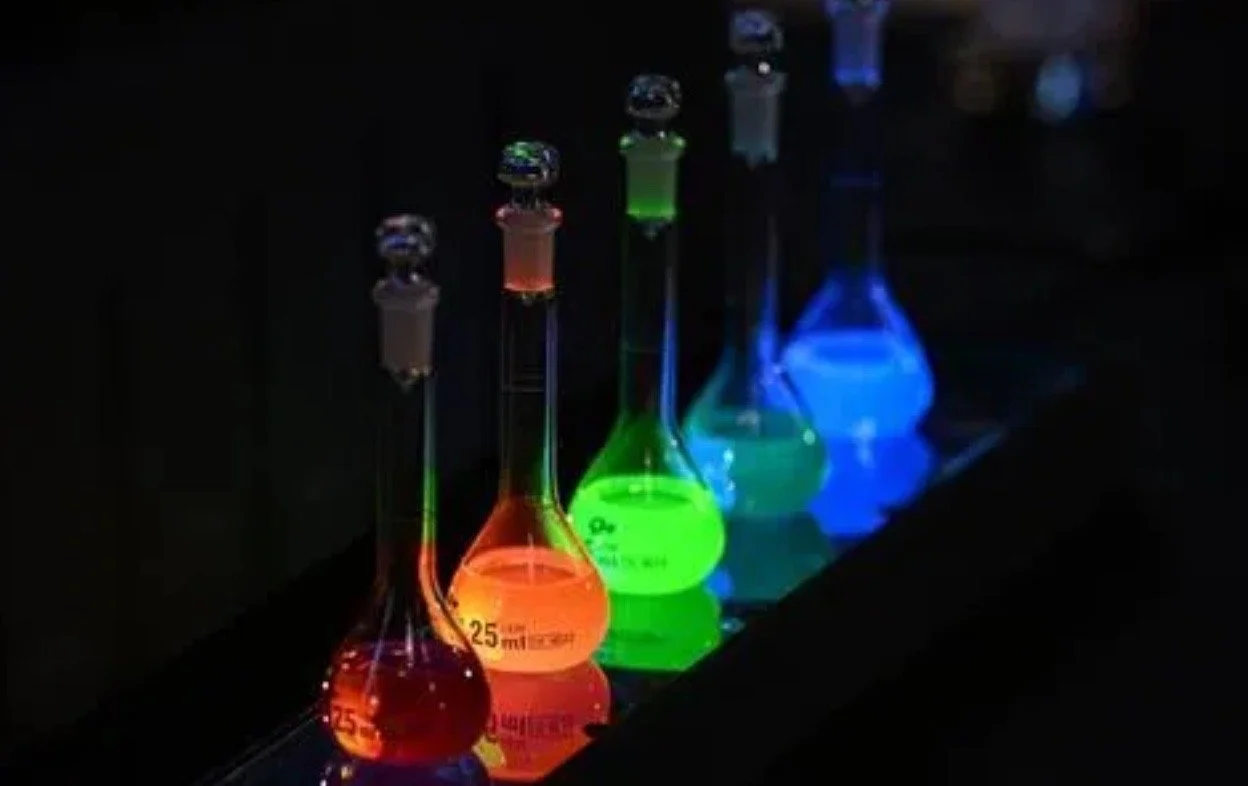Quantum Dots: Tiny Particles with a Big Future
Written By: Kesavan Rangarajan
Imagine a world where technology is so advanced that it can create materials that are brighter, more efficient, and more versatile than anything we have seen today. This is the world of quantum dots, tiny particles revolutionizing how we live and work.
What are quantum dots?
Quantum dots are tiny particles made of semiconductor material that are only a few nanometers in size. They are so small that they are measured in units of billionths of a meter (nanometers). Despite their small size, quantum dots have some amazing properties that make them incredibly useful for a wide range of applications.
An image of quantum dots in a flask (The Chemistry World)
Properties of quantum dots
One of the most unique properties of quantum dots is their ability to emit light. When excited by a certain wavelength of light, quantum dots can emit light of a different color, known as fluorescence. This property makes quantum dots useful for biomedical imaging, which can be used to label specific molecules or cells and make them visible under a microscope.
Another important property of quantum dots is their ability to convert light into electricity. By using quantum dots to convert sunlight into electricity, scientists are working on creating more efficient solar cells that could help to reduce our reliance on fossil fuels.
An image of quantum dots in cancer imaging research
Applications of quantum dots
Quantum dots have a wide range of potential applications, from biomedical imaging to electronics to energy. These quantum dots have many applications and uses. For example, quantum dots can be used to label specific molecules or cells and make them visible under a microscope. This has led to breakthroughs in the diagnosis and treatment of diseases such as cancer.
Quantum dots are also being used to create more efficient and versatile electronic devices, such as transistors and solar cells. This can drastically reduce the size while increasing the power of many electronic devices. Quantum dots can make more efficient solar panels, converting light to electricity in a far more efficient way. Also, many technology companies, like LG and Samsung, are using quantum dots to make better displays for TVs.
Works Cited
“The Nobel Prize in Chemistry 2023.” NobelPrize.Org, https://www.nobelprize.org/prizes/chemistry/2023/advanced-information/ Accessed 10 Nov. 2023.
The Chemistry World, https://www.chemistryworld.com, Accessed 10 Nov. 2023.

